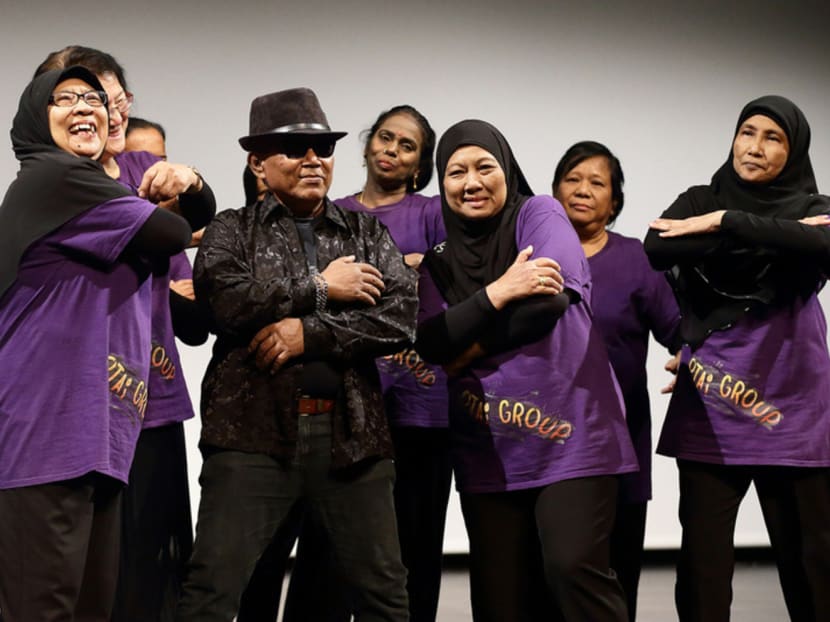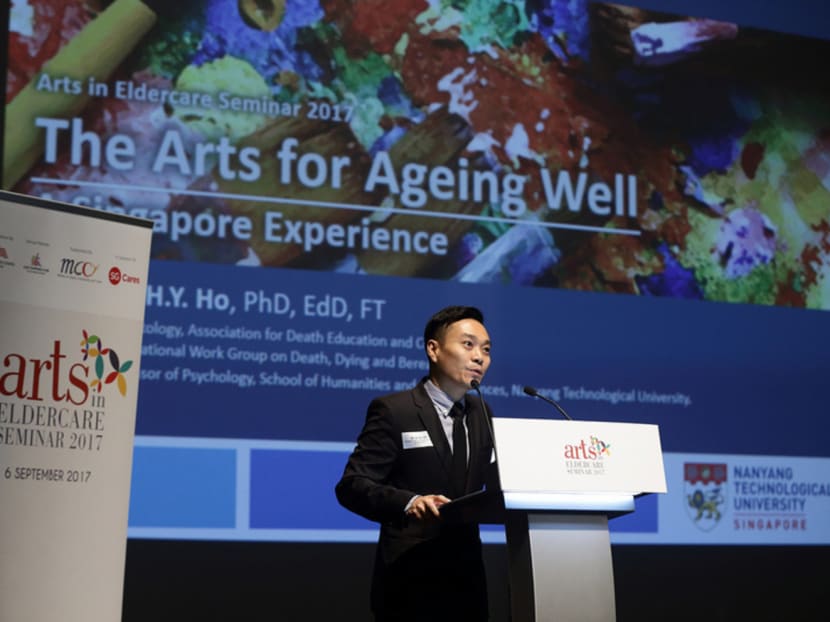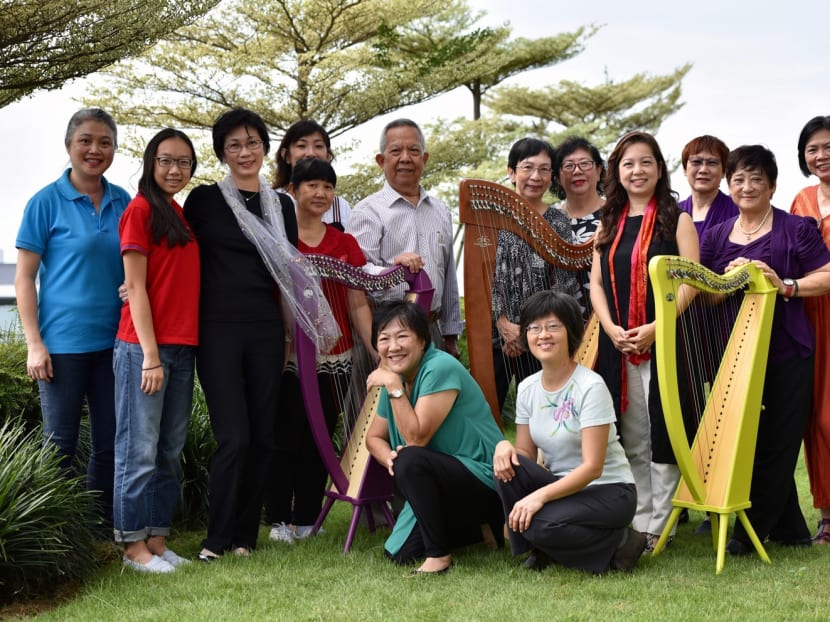Involvement in arts helps elderly enjoy a better quality of life: Study
SINGAPORE — Seniors in Singapore have the lowest attendance and participation rates in the arts compared to other segments of the population. But a new study has found that those who are engaged with the arts are likely to enjoy a better quality of life.



SINGAPORE — Seniors in Singapore have the lowest attendance and participation rates in the arts compared to other segments of the population. But a new study has found that those who are engaged with the arts are likely to enjoy a better quality of life.
The Arts for Ageing Well study, led by Nanyang Technological University’s (NTU) School of Social Sciences Associate Professor Andy Ho, examined the effects of arts engagement and participation on the holistic well-being of the elderly in Asia.
As part of the study commissioned by the National Arts Council (NAC), a survey of 1,067 Singaporeans and permanent residents over the age of 50 was carried out between November last year and February.
Those who reported having been exposed to an art form were found to experience an improved quality of life by about 4 per cent.
Dr Ho told TODAY: “In our focus groups, they engage in a variety of art forms: Music, dance and visual arts. Some participants also shared with us that cooking (as a form of art) is very important to them. Things that help remind them of their childhood; so knitting and embroidery.”
The study also found that three in four seniors surveyed acknowledge the benefits of the arts, and value it as a means of inspiration, expression and bridging differences.
Seniors who attend arts events experience increased social support (of 4 per cent), physical health (of 3 per cent), and cognitive functioning (of 3 per cent).
Those who participate in arts activities experience an enhanced sense of spiritual well-being (of 10 per cent) and mental well-being (of 4 per cent).
According to the study, the benefits of arts participation are also “comparable” with the use of anti-depressants, physical activity and psychotherapy.
Sharing his findings at the annual Arts in Eldercare Seminar held yesterday, Dr Ho said: “With this evidence, we have the power to show health and social care centres that art needs to play a much more prominent role in the work that they do, so that we can incorporate art into hospitals, nursing homes and elderly care centres, and make this a permanent fixture rather than a one-off activity.”
Guest-of-honour at the event, Minister for Culture, Community and Youth Grace Fu, said: “Although we know intuitively that our seniors benefit when engaged in the arts, I am glad to note that this is now backed by NAC’s study.
“The study showed that seniors who engage in the arts do experience a greater sense of holistic well-being.
“In particular, participation in the arts contributes significantly to the mental health and sense of purpose in seniors, empowering them to live an active and fulfilling life,” she added.
Ms Fu also noted that the government is looking to strengthen research capabilities, “as this would enable evidence-based policy-making, and guide us to channel resources to areas which are likely to have a significant impact on seniors”.
The one-day seminar, now in its fourth edition, was attended by 300 social and healthcare practitioners, artists and policymakers.
Organised by the NAC, the closed-door seminar was held in conjunction with Silver Arts 2017.
The festival, which runs until Sept 24, features 38 programmes, involving more than 80 artists and art groups. This year’s offerings showcase nearly 70 veteran artists and senior talents, 28 per cent more than last year.
Ms Chua Ai Liang, NAC’s senior director for engagement and participation, said: “Beyond providing touch points such as the Silver Arts Festival for seniors to encounter quality and relevant arts content, we will continue to work with partners to enable a broad cross-section of seniors to experience arts in various social settings.
“We want to provide more opportunities for inter-generational interactions, to build and strengthen social bonds through the arts.”









